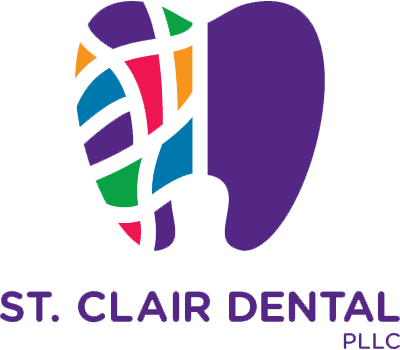Bad breath, especially if it does not go away, can be a huge problem. Having bad breath can make you more self-conscious about your interactions with other people and make your life miserable if you’re unable to tackle the issue. Bad breath that doesn’t go away is referred to medically as halitosis. It affects people every day, and most cases of bad breath can be resolved by brushing your teeth, flossing, and using mouthwash. But with chronic forms of halitosis, there can be an underlying problem beneath the smell, and that’s where Dr. Karl and her team at St. Clair Dental in Granbury come in.
Did you know…
Bad breath can normally be caused by simple acts, such as eating too much garlic or smoking tobacco. With food, the odors from bad breath are produced from the chemical reactions of your enzymes and saliva as it attempts to digest and soften food overtime. Bacteria in these cases form and can cling on to your teeth and gums, causing bad breath. While this can be remedied with simple oral care, other instances, such as the inertial signs of gum disease from acts such as tobacco use and poor oral care, can lead to chronic cases of bad breath.
Frequently Asked Questions
Will I need treatment if the bad breath doesn’t go away?
If your bad breath does not improve, we recommend seeing Dr. Karl and asking her about professional treatment. If both short-term remedies, such as gum, mouthwash, and breath mints, and long-term remedies such as basic oral care, don’t help, Dr. Karl will be able to assess your condition and give you a treatment plan that helps remove the bad breath.
What should I expect from Dr. Karl?
Dr. Karl will first examine the health of your teeth and gums and then ask questions about your daily habits, such as the foods you eat, the medications you take, and so on. She will look in your mouth for signs of decay, infections, and gum disease that could cause the bad breath. She will refer you to a trusted physician for further evaluation if she cannot find a cause.
What can I do to maintain better breath?
Keep breath mints and strips handy with you at all times. Try and sleep with your mouth close, because dry mouth can most often be the cause of bad breath during the mornings. Try to limit odor-causing foods, such as garlic and onions from your diet, and keep up with regular oral health habits to remove the build-up of plaque.
